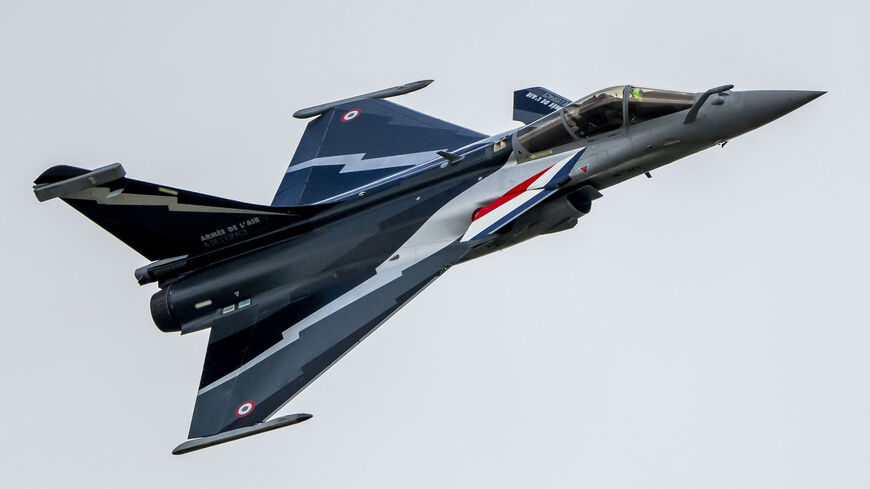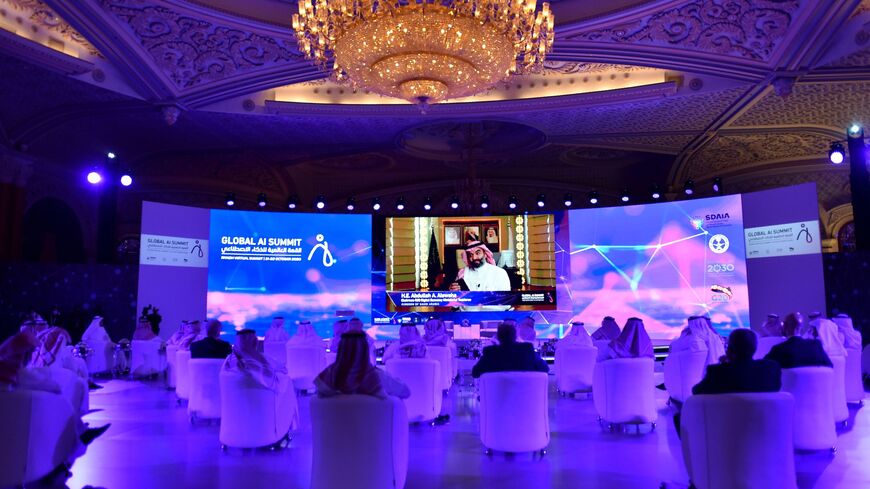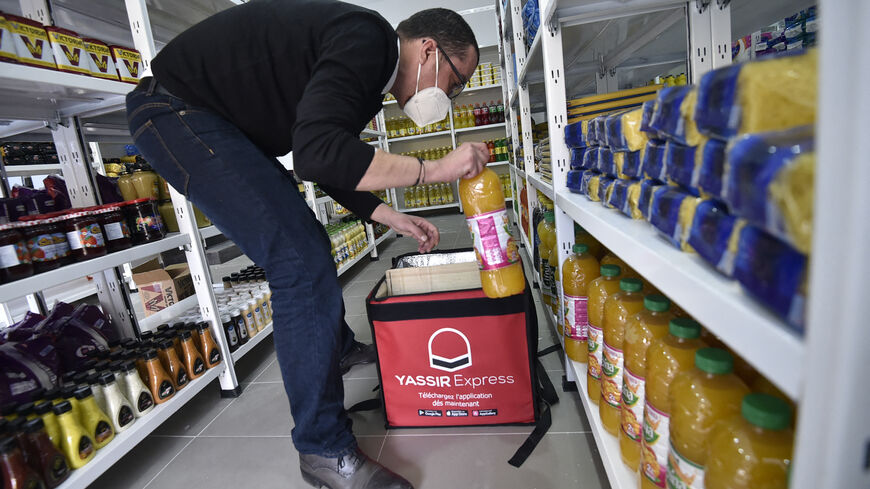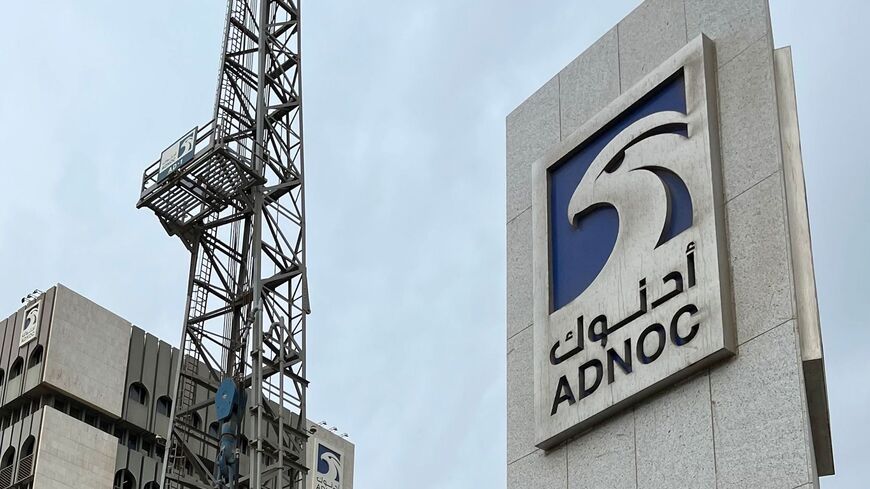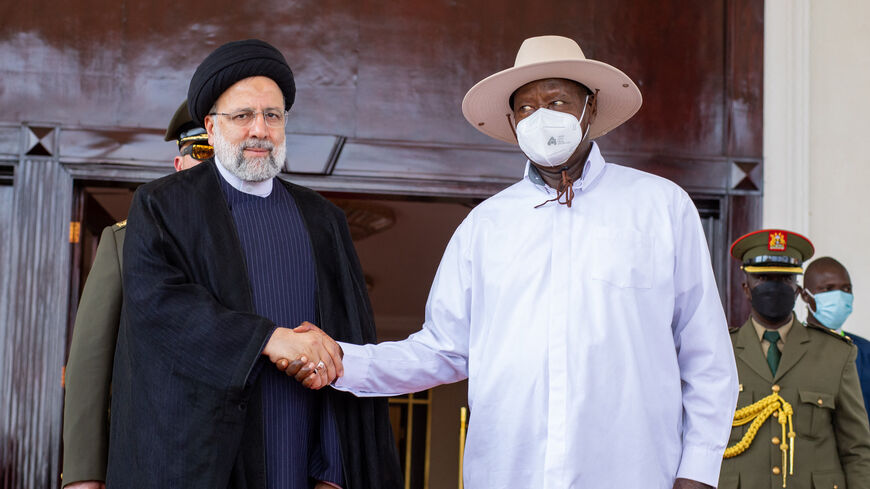France challenges US defense industry in Middle East as Rafale fighter jet sales outshine F-35
Al-Monitor Pro Members
Samuel Wendel
Senior Market Research Analyst, Al-Monitor
Aug. 4, 2023
France is gunning for another major warplane deal with Qatar. News surfaced in July that Doha may purchase 24 additional Rafale fighters, a contract potentially worth around $6 billion. This comes as Middle East states have lined up to buy the French warplane over rival US-made F-35s, which is seeing regional customers helping fuel France’s record arms exports. That’s threatening the dominance of US defense contractors in the Middle East as Washington’s relations fray with traditional allies, which are seeking to diversify their weapons suppliers. The frontlines of that rivalry may soon shift to Saudi Arabia, a market where the United States commands 78% of arms imports. France now looks poised for more defense dealmaking in the kingdom amid President Emmanuel Macron’s charm offensive with Crown Prince Mohammed bin Salman, which in June 2023 produced a new Airbus joint venture to produce military helicopters in the Gulf country.
- The Middle East is helping fuel France’s booming weapons industry: French arms exports reached a record high $30 billion in 2022, reports AFP, with the UAE, Egypt and Qatar its biggest customers between 2013-2022.
- 34% of French arms exports went to the Middle East between 2018-2022, according to the Stockholm International Peace Research Institute (SIPRI). France delivered 12% of Middle Eastern weapons imports during that period, while the United States captured 54%, Russia 8.6% and Italy 8.4%.
- That came as France, currently the world’s third largest weapons exporter after the United States and Russia, had an 11% share of global arms exports between 2018-2022, up 44% over the prior four-year period, according to SIPRI. During that span, US exports rose 14% and Russia’s fell 31%. Sales from China, the fourth largest exporter, decreased 23%.
- France has scored several landmark regional defense deals recently, centered on Dassault Aviation’s Rafale, which has rivaled sales of Lockheed Martin’s F-35. The headliner: in December 2021, the UAE agreed to spend $19 billion on 80 Rafales and a dozen military helicopters from French aerospace giant Airbus, marking France’s largest foreign military sale to date. In 2022 alone the deal contributed over $17 billion to French arms exports, AFP reported.
- The massive deal, which took over a decade to complete, undercut US efforts to sell F-35s to the UAE. “At a time when they undoubtedly asked themselves more questions about other historical partners ... I think that this strengthens France's position,” said French President Emmanuel Macron at the time, likely referencing the United States.
- That said, SIPRI reports the United States still provides 66% of Emirati arms imports, followed by Turkey’s 7.4% share and Russia’s 5.4%. Notably, the Rafale deal came right after the United States convinced Australia to cancel a $66 billion agreement for 12 French submarines.
- In May 2021, France scored a contract reportedly worth $4.5 billion to sell 30 Rafales to Egypt, the world’s sixth largest weapons importer. In 2015, Egypt signed a deal to purchase 24 Rafales.
- Russia was Cairo’s top weapons supplier over the past four years, providing 34% of arms imports, followed by Italy’s 19% and France’s 19% (down from 37% between 2014-2018). In the early 2000s the United States provided 75% of Egyptian arms imports, according to SIPRI.
- Qatar is now considering buying 24 more Rafales after France’s defense minister visited Doha in July 2023 to cement military ties, Reuters reported, with France seeing an opportunity to develop a defense partnership built on existing cooperation. Qatar has already bought 36 Rafales since 2015, when the countries forged an initial $7 billion deal.
- Qatar, the world’s third largest importer, also continues doing robust business with the United States, which provides 42% of Doha’s arms imports compared to France’s 29%. Washington also approved a potential $1 billion sale of an anti-drone system to Doha in late 2022.
- France has also faced setbacks. In May 2023, the UAE axed its order for 12 military helicopters from Airbus, a contract worth $879 million. An Emirati official reported the cancellation stemmed from financial and technical reasons, not political ones.
- Ultimately, the Middle East and North Africa features prolific military spenders and strong export opportunities — most notably Saudi Arabia. The second largest arms importer globally, the kingdom’s military budget reached $75 billion in 2022.
- Saudi Arabia is also America’s largest foreign military sales customer, with the United States providing 78% of arms imports. However, France recently overtook the UK as the kingdom’s second largest supplier, accounting for 6.4% of imports. Saudi Arabia has yet to buy Rafales, although a December 2022 article from French publication La Tribune hinted at the possibility.
- Notably, Saudi Crown Prince Mohammed bin Salman also met with Macron in Paris this June, signaling a strengthening partnership. The visit coincided with Saudi defense company SCOPA Industries signing an agreement with Airbus to jointly produce civil and military helicopters in the Gulf country.
- The competitive landscape is also changing, with regional states increasingly focusing on self-sufficiency and reducing reliance on suppliers that place conditions on sales — a trend amplified by America’s perceived disengagement and fraying regional ties. For instance, Saudi Arabia aims to localize 50% of military procurement by 2030.
- Meanwhile, Beijing’s rising regional clout has yet to produce any landmark weapons deals, but Chinese defense players loom: Turkey’s IDEF weapons fair in July saw 75 Chinese companies exhibit, compared to six US firms.
- Crucially, the UAE agreed to acquire a dozen L-15 jet trainers from Chinese aircraft manufacturer Hongdu in February 2023. Although likely only worth between $120-$180 million, the deal sent a message to Washington after the UAE walked away from acquiring F-35s in 2021 amid frustration with US attempts to limit Chinese technology sales.
- Still, China’s regional arms sales remain low and none of its top customers are in the Middle East currently. Defense deals were also starkly absent from President Xi Jinping's landmark visit to Riyadh in December 2022, although a joint statement from the summit emphasized potential to strengthen defense cooperation.
- A leaked US intelligence document from December 2022 warned that Saudi Arabia plans to expand its “transactional relationship” with China by procuring drones, missiles and more.
- Plus, in 2022 Saudi Arabia’s defense ministry inked an ammunition deal worth roughly $115 million with China-based Norinco and Riyadh’s ACES Co. partnered with a Chinese state-run firm to develop Saudi UAVs.
- Elsewhere, the Ukraine war is squeezing Russia’s defense industry, threatening regional arms sales. Egypt ranks among Moscow’s top customers and Russia enjoys a 73% share of arms imports to Algeria, where France provides 5.2%.
- Also noteworthy, the Dutch government lifted restrictions on arms deliveries to Turkey, the UAE and Saudi Arabia in July 2023.
Scenario 1: France boosts sales to Saudi Arabia
As the US-Saudi relationship deteriorates, it’s France rather than China that capitalizes — with Macron linking up with MBS to secure a splashy billion-dollar defense pact, with Rafales on the table.
That said, truly denting the dominance of US defense contractors will be daunting for the foreseeable future. Plus, the 2024 election result could improve frayed ties between Washington and Riyadh.
Scenario 2: France fills Russia’s void
Russia prioritizes supplying its armed forces in Ukraine, decreasing exports. That sees France muscle into Algeria and win new contracts — potentially with another Rafale deal.
Still, there will be competition to replace Russia, with China, Turkey, Italy and Germany all options. Algeria may also still prefer advanced Russian fighters over Rafales.
As a lucrative new Rafale deal with Qatar takes shape, France is poised to continue deepening military-commercial ties in the Middle East and challenging the United States as a weapons supplier. Some future deals will likely involve co-production agreements, but there is also potential for new landmark contracts for high-end weapons. China has struck some opportunistic deals recently, but French arms exports should only grow if Paris can continue seizing on Washington’s strained regional relationships. That partially boils down to the United States and France being allies despite their burgeoning rivalry — making it easier for regional governments to justify deals with Paris over Beijing as they diversify arms procurement.
Samuel Wendel is a senior market research analyst with Al-Monitor covering economic, tech and business trends across the Middle East. He has previously served as a journalist with Forbes Middle East and Wamda, where he reported on key industry developments spanning a range of sectors in the region.
We're glad you're interested in this memo.
Memos are one of several features available only to PRO Expert members. Become a member to read the full memos and get access to all exclusive PRO content.

Already a Member? Sign in
The Middle East's Best Newsletters
Join over 50,000 readers who access our journalists dedicated newsletters, covering the top political, security, business and tech issues across the region each week.
Delivered straight to your inbox.
Free
What's included:
Free newsletters available:
- The Takeaway & Week in Review
- Middle East Minute (AM)
- Daily Briefing (PM)
- Business & Tech Briefing
- Security Briefing
- Gulf Briefing
- Israel Briefing
- Palestine Briefing
- Turkey Briefing
- Iraq Briefing
Premium Membership
Join the Middle East's most notable experts for premium memos, trend reports, live video Q&A, and intimate in-person events, each detailing exclusive insights on business and geopolitical trends shaping the region.
$25.00 / month
billed annually
$31.00 / month
billed monthly
What's included:
Memos - premium analytical writing: actionable insights on markets and geopolitics.
Live Video Q&A - Hear from our top journalists and regional experts.
Special Events - Intimate in-person events with business & political VIPs.
Trend Reports - Deep dive analysis on market updates.
We also offer team plans. Please send an email to pro.support@al-monitor.com and we'll onboard your team.
Already a Member? Sign in


